Give comfort and two meals for £25
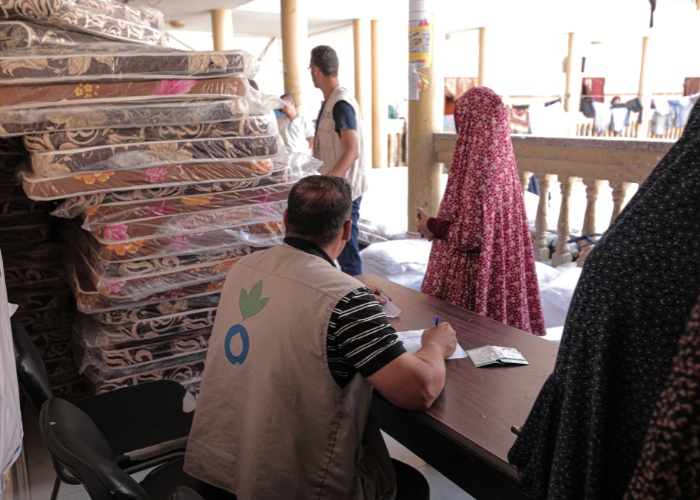
We've served over of 3,120 family-sized hot meals every 20 days to families in urgent need of food.
Just £25 could provide one person in Gaza with a pillow, mattress, blanket and two meals for three days.
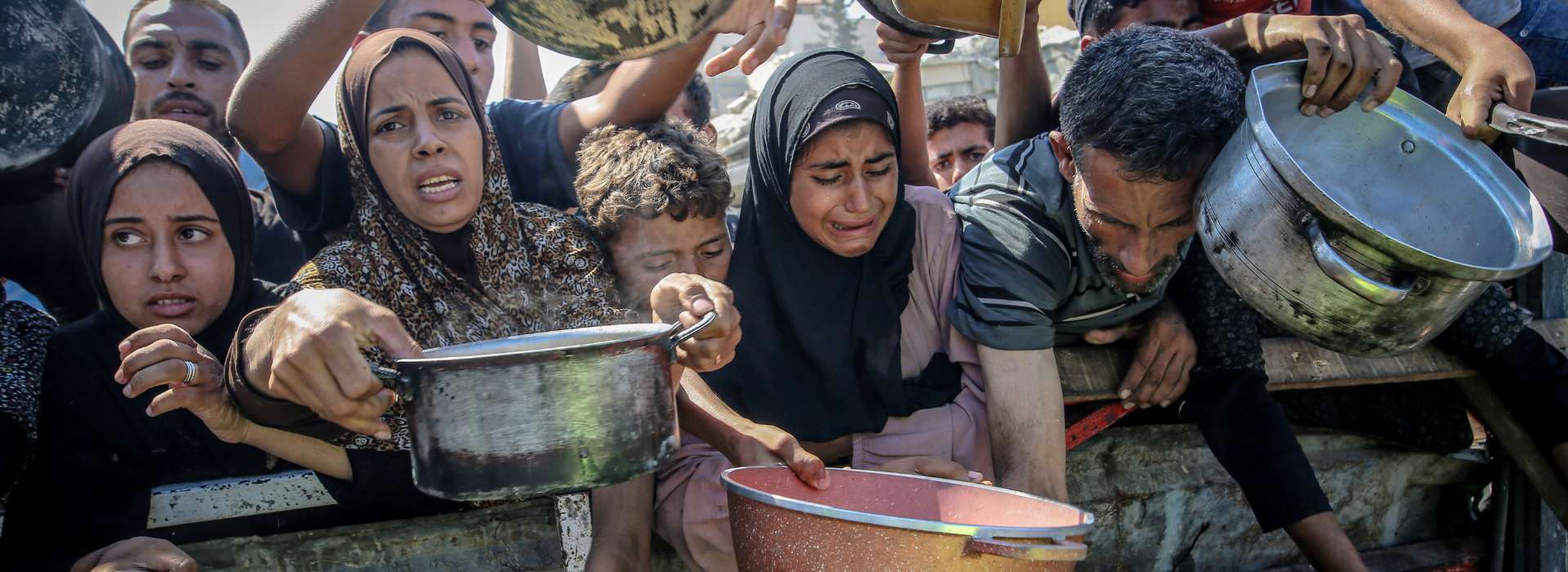
The ceasefire in Gaza offers hope. And we’re ready to scale up our operations. Families need humanitarian aid like food, water and medicine now.
After more than two years of displacement and extreme violence, Palestinians are still suffering. Famine has been declared and 500,000 people in the Gaza Strip are facing starvation, extreme poverty and death.
Despite impossible conditions, we’re still in Gaza – even as our own teams face extreme hunger. Here’s how we’re supporting the emergency response:
Will you make an emergency gift to help families in Gaza get the emergency aid they need? Most people give an average of £35.65.
“I saw a 7-year-old boy who weighed only 6.5kg. Prevention is key to stop children on the brink of starvation from falling into hunger.”
Page last updated: 27 October 2025
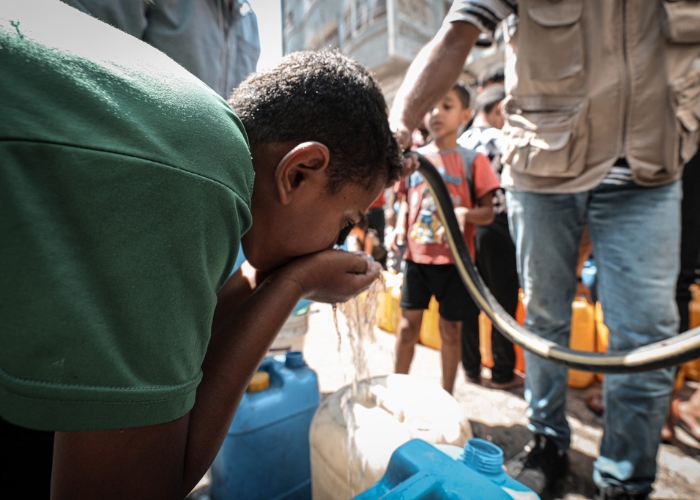
Thanks to supporters like you, our teams have reached over 1.35 million people in Gaza and the West Bank so far through aid activities like:

We've served over of 3,120 family-sized hot meals every 20 days to families in urgent need of food.
Just £25 could provide one person in Gaza with a pillow, mattress, blanket and two meals for three days.
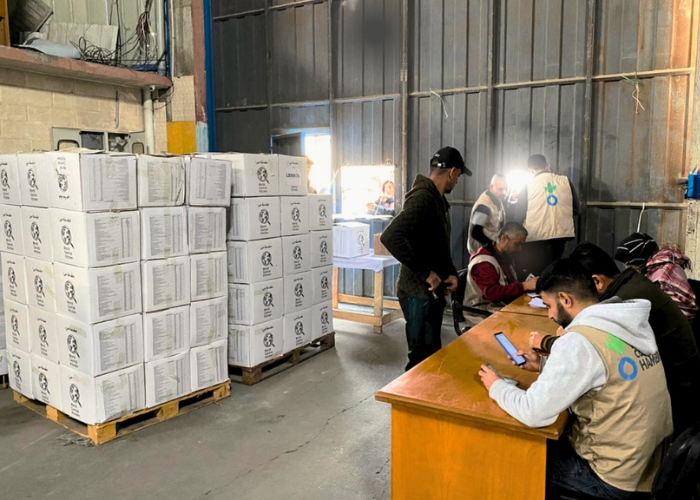
Last month, over 83% of households couldn't meet their basic nutritional needs.
Just £47 could provide a fresh food basket that keeps a family of six in Gaza nourished for two weeks.
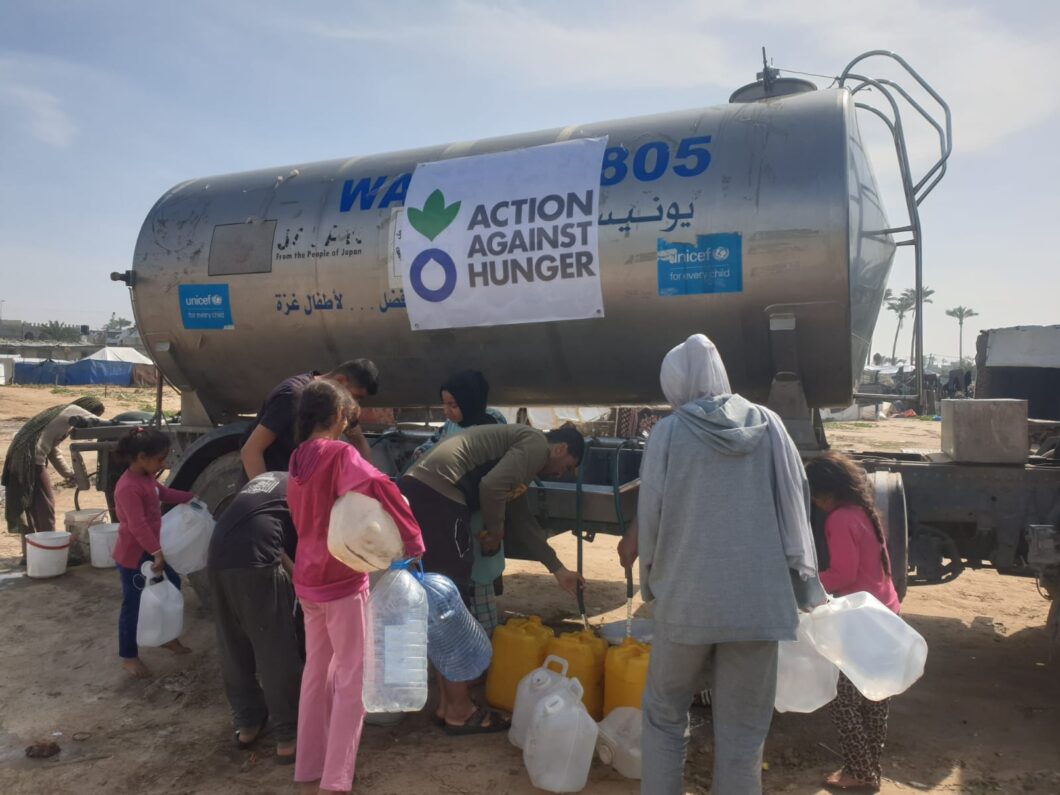
We've distributed 37 million litres of clean water to people in Gaza.
Just £103 could provide two tanks of clean water for families in need. One tank can hold up to 5,000 litres.
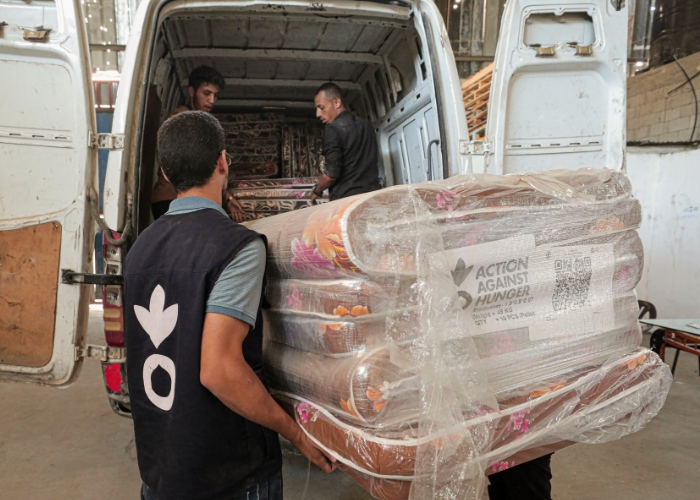
Homes, hospitals, schools, and markets in Gaza have been destroyed. Everything families need to survive is gone. And people in are relying on aid just to get by.
Across Gaza, child malnutrition has increased 700% since October 2023. We treated over 430 malnourished children in July and August.
It's not too late to prevent further loss of life. Your donation today could be a lifeline for someone in Gaza.
Help Gaza: Donate to send food and aid
Families are going days – even weeks – with no food. We asked people in Gaza when they last had a meal. This is what they told our team:
“I have two children and a wife. The last time we had a meal, which was an eggplant salad, was fifteen days ago. It was a blessing.”
“I have a wife and child. The last time we had a meal was a few days ago when some vegetables were distributed around the camp.”
“I have a family of seven. The last time we had a real full meal was a week ago. It was fish.”
You can help a family in Gaza eat today.
Over 67,000 Palestinians have been killed in the conflict. 18,000 of those being children.
£25 could provide one person who's lost loved ones with a pillow, mattress, blanket and two meals for three days.
2.1 million people in Gaza have reached emergency levels of hunger.
£47 could provide a fresh food basket that keeps a family of six in Gaza nourished for two weeks.
We've supported over 200 sites in Gaza with clean water.
£103 could provide two tanks of clean water for people in Gaza. One tank can hold up to 5,000 litres.
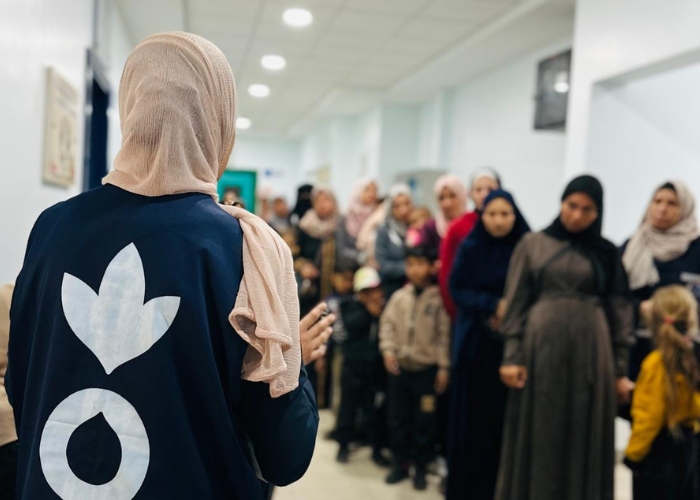
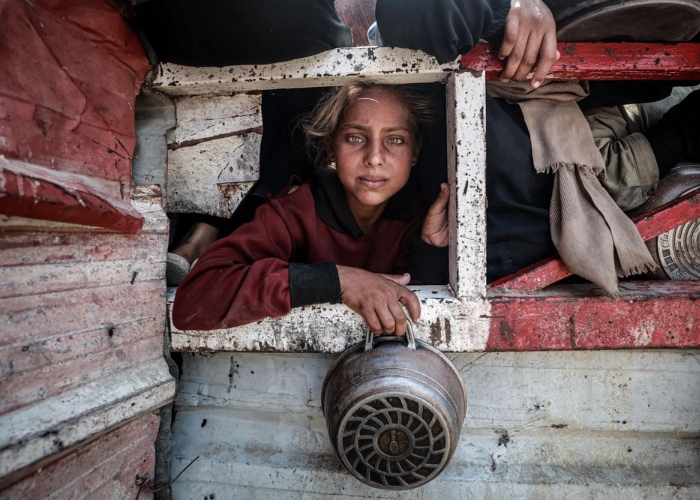
Action Against Hunger has worked in Gaza since 2002. Since October 2023, our teams have been working on supporting families in Gaza through airstrikes, displacement, and severe access constraints.
Your donation to our Gaza Crisis Appeal will help protect vulnerable communities we’re supporting in the Occupied Palestinian Territory and Lebanon.
Any funds raised over and above the needs of our Gaza Appeal will go to our life-saving work and used where the need is greatest. Out of every £1 raised, we spend 94p on charitable activities and services and 6p on fundraising and support costs.
Photo credit 1: Mahmud HAMS/AP
Photo credit 2: Mohammed Abed/AFP